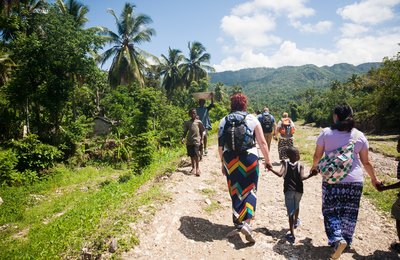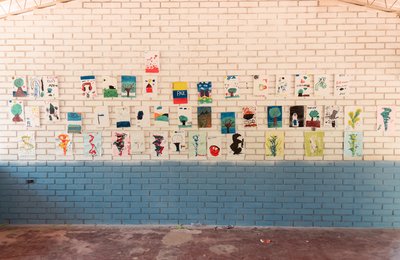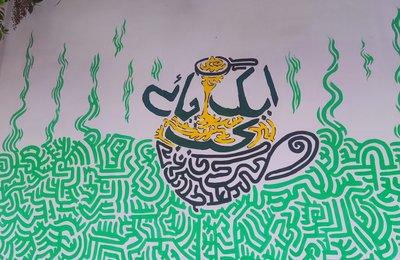 YES Network’s Social Enterprise Competition enabled Shah Mehmood to establish a successful youth-led cricket academy in the Federally Administrated Tribal Area (FATA) of Pakistan. Image credit: Zahid Ahmed.
YES Network’s Social Enterprise Competition enabled Shah Mehmood to establish a successful youth-led cricket academy in the Federally Administrated Tribal Area (FATA) of Pakistan. Image credit: Zahid Ahmed.In 1997, Raza Khan took a job with Family Planning of Pakistan as a facilitator of youth sexual reproductive health programmes. While conducting workshops, orientation sessions, and training of trainers throughout the country, Ali began questioning the effectiveness of his work. Although evaluations showed increases in the skills and knowledge among participants, Ali knew that they faced significant constraints in benefiting fully from these gains.
“Those young people sitting in front of me had so many other things to think about,” he recalls.
“They have poor parents, they don’t have medicine, they don’t have enough money to pay their electricity bills, they don’t have anything to eat, and I’m trying to pour wisdom into them.”
Ali had heard countless young people questioning their purpose and value in society. These experiences inspired Ali to try something different. So he resigned from his job and launched the first-ever youth-led development movement in the country, YES Network Pakistan. YES sought to provide young people with practical entrepreneurial experiences, seeing them people as the most promising resource available.
“I knew that once I had created desire among young people, they would be able to take care of themselves, their communities, and their families,” Ali explains. “Desire is such an important thing in life. If you don’t have desire, you will never be able to succeed.”
Despite YES’s achievements, there is much still to be done. According to Ali, the unprecedented increase in youth-led terrorism incidents should act as a wake-up call. The current response can be described as fragmented, inadequate, problem-oriented and charity-driven. The security and well-being of the entire country is at stake due to a youth crisis, one which is invisible to many people and institutions but which must be taken seriously.
Ali envisions young people as part of the solution rather than the problem, and as a major untapped force for bringing peace and positive change to communities. YES’s Social Enterprise Competition for Peace in Schools project is a good example of this approach. The project recognises the effectiveness of experiential and participatory learning, providing young people with opportunities to establish social enterprises that could play an important role in promoting peace.
Shah Mehmood lives in the Federally Administrated Tribal Area (FATA) of Pakistan – a region notorious for Taliban infiltration. With limited facilities and opportunities, young people in FATA are at high risk of becoming involved in violent criminal activity. In this challenging context, YES supported Shah Mehmood in establishing a cricket academy. This remarkably successful project has produced outstanding local players, several of whom have been selected by the National Cricket Academy of Pakistan for further training. Mehmood’s project is a youth-led solution, providing a platform for vulnerable children and generating income for those coaching. These are the sort of creative solutions that the YES Network seeks to develop.
Upon return from the training, she started holding the peace festivals. The purpose of the festivals was to offer a wide range of services, including counselling and entertainment, to young women who are suffering from trauma and social exclusion. She wanted to help those girls who had witnessed terrorist acts, many of whom were deeply traumatised. The psychological effects of these experiences can be complex and long-lasting, and many of the girls were contemplating giving up their education as a result. The peace festivals sought to infuse a new spirit among them and redirect their energies towards education.
According to Ali, "we cannot hope to stop youth-led terrorist attacks in Pakistan, prevent the conflicts of tomorrow, and ensure progress on a sustained basis without the engagement of young people. Today, the silent majority of Pakistan consists of young people, and they remain silent because of the paradigm in which they grow and live”.
He argues that "the sustainability of peace projects lies in creating a community of knowledge and practice in the field of youth-led peacemaking efforts. It also involves scaling-up good projects and attracting new partners and organisations to invest in youth-led peacemaking to ensure that the next cohort of leaders is advancing solutions for the country’s most pervasive problems.”
It is with this clear vision that Ali has managed to achieve success. It is hoped that his story will inspire youth organisations around the world to similar feats.






